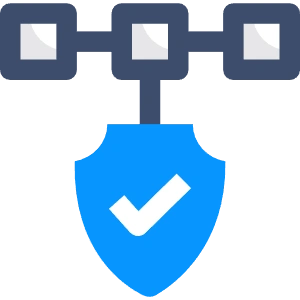CryptoCurrency Wallet Development
Cryptocurrency Wallet Development refers to the process of creating secure digital wallets that allow users to store, send, receive, and manage cryptocurrencies safely. These wallets act as a bridge between users and blockchain networks, providing access to digital assets while ensuring security, privacy, and control over private keys. Wallets can support multiple cryptocurrencies (multi-currency wallets) or be tailored for specific coins, and they can be custodial (managed by a third party) or non-custodial (fully controlled by the user). Advanced wallets often integrate DeFi features, staking, NFT support, and fiat on/off ramps to enhance user experience.


Secure and Scalable Cryptocurrency Wallet Solutions – Reliable, User-Centric, and Resilient
Secure and Scalable Cryptocurrency Wallet Solutions focus on building high-performance, reliable digital wallets that allow users to store, manage, and transfer cryptocurrencies safely and efficiently. Designed for both individuals and enterprises, these wallets combine robust security measures, scalable architecture, and an intuitive user experience to ensure seamless access to digital assets.Whether managing single or multiple cryptocurrencies, these wallets provide real-time transaction monitoring, cross-platform accessibility, and advanced integration with DeFi platforms, staking mechanisms, and NFT ecosystems, making them essential tools in today’s blockchain landscape.
Innovative Crypto Wallet Development – User-Friendly, Secure, and Community-Driven
Innovative Crypto Wallet Development focuses on creating next-generation digital wallets that are not only secure and efficient but also engaging and community-focused, similar to the viral and interactive appeal of meme coins. These wallets are designed to enhance user experience, foster community participation, and simplify access to cryptocurrencies, enabling users to store, send, receive, and manage digital assets effortlessly.

Intuitive and User-Friendly Interface
Simplified navigation and clear dashboards make wallet management easy for beginners and advanced users alike.

Advanced Security Protocols
Multi-layered encryption, biometric authentication, and multi-signature support ensure the highest level of asset protection.

Community Engagement Features
Integrated social tools, rewards, and governance features encourage active participation and user retention.

Multi-Currency and Token Support
Manage a wide range of cryptocurrencies, stablecoins, and tokens within a single platform.

DeFi and DApp Integration
Access staking platforms, decentralized exchanges, and NFT marketplaces directly through the wallet.

Cross-Platform Compatibility
Seamless access across mobile, desktop, and web platforms for convenience and flexibility.
Next-Gen Crypto Wallet Architecture – Secure, Engaging, and Community-Oriented
Next-Gen Crypto Wallet Architecture focuses on creating cutting-edge digital wallets that combine robust security, intuitive user experience, and community-driven features. These wallets are designed to be more than just storage solutions—they act as interactive platforms where users can manage multiple cryptocurrencies, participate in DeFi activities, access NFTs, and engage with blockchain communities in a secure environment. By leveraging modern blockchain technologies, these wallets offer scalability, real-time transactions, cross-platform support, and innovative tools that encourage active user participation and community engagement.

Eco-Friendly Crypto Wallet Development – Sustainable, Secure, and Community-Focused
Eco-Friendly Crypto Wallet Development focuses on building sustainable, energy-efficient digital wallets that prioritize security, usability, and community engagement. These wallets are designed to minimize environmental impact by optimizing resource usage while maintaining high performance and robust security protocols. They serve as more than just storage solutions—they become interactive hubs for managing cryptocurrencies, stablecoins, NFTs, and DeFi activities, all while promoting sustainable blockchain practices. By combining eco-conscious design with advanced blockchain features, these wallets appeal to environmentally aware users and communities looking for secure, transparent, and socially responsible crypto management solutions.
FAQ
What is Cryptocurrency Wallet Development?
Cryptocurrency wallet development involves designing and building digital wallets that allow users to store, send, and receive cryptocurrencies securely. Modern wallets can be hot wallets (online) or cold wallets (offline), and may support multiple currencies, DeFi integration, and NFT management.
What types of cryptocurrency wallets can be developed?
Hot Wallets: Connected to the internet; easy access but higher security risks.
Cold Wallets: Offline storage; highly secure but less convenient.
Mobile Wallets: Apps for smartphones; user-friendly and convenient.
How is wallet security ensured?
Security is ensured through multi-layer encryption, private key management, biometric authentication, multi-signature support, and secure coding practices. Additional measures include two-factor authentication (2FA) and cold storage options for extra safety.
Can a crypto wallet integrate DeFi and NFT features?
Yes. Modern wallets can be developed to interact with DeFi platforms, staking protocols, decentralized exchanges (DEXs), and NFT marketplaces, enabling users to manage digital assets directly within the wallet interface.
What platforms can cryptocurrency wallets support?
Wallets can be built for mobile (iOS, Android), desktop (Windows, macOS, Linux), and web platforms, ensuring seamless access for users across devices. Cross-platform compatibility is key for user convenience.
How customizable are cryptocurrency wallets?
Wallets can be fully customized to include branding, UI/UX design, supported tokens, transaction fees, staking options, reward systems, and governance features, tailored to the client’s business or community requirements.
How long does it take to develop a crypto wallet?
Development time depends on features, security requirements, platform compatibility, and complexity. A basic wallet can take a few weeks, while advanced multi-currency wallets with DeFi, NFT, and community features may take 3–6 months or longer.

